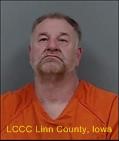Iowa Cattleman Faces 30 Years for Fraud, Theft

A Clayton County, Iowa, cattleman plead guilty Dec. 1 in Cedar Rapids federal court to livestock theft, wire fraud and one count of making a false bankruptcy declaration.
Michael Wayne Butikofer, 53, from Monona, Iowa, admitted he operated a large farming operation in Northeastern Iowa and operating an unlicensed custom cattle farm known as “Fawn Hollow.” According to court records, Butikofer operated a custom cattle feeding/backgrounding operation from his home outside St. Olaf, Iowa, and satellite locations elsewhere in Iowa and Minnesota.
Employees of his organization would raise and care for cattle owned by other individuals, including cattle investors located across the United States. Fawn Hollow then sold the cattle, primarily to a Wisconsin slaughterhouse, according to a statement from the U.S. attorney for the Northern District of Iowa.

Butikofer ran afoul of the Packers and Stockyards Act when he failed to register with USDA as a dealer of livestock. Butikofer and another individual identified as “Individual-1” did participate in the so-called “H-2A” visa program and recruited agricultural workers from the Republic of South Africa to work at Fawn Hollow.
Between July 2020 and February 2022, Butikofer converted the proceeds of sales of cattle owned by six cattle investors to his own use. Butikofer had convinced the cattle investors to allow Butikofer to sell the cattle in his own name. When Butikofer sold the cattle to the Wisconsin slaughterhouse, Butikofer falsely represented to the slaughterhouse that he had “good and merchantable title to” the cattle when he did not, in fact, own or otherwise have title to the cattle.
"By convincing the cattle investors to permit Butikofer to sell their cattle in his own name and by fraudulently concealing the true ownership of the cattle from the slaughterhouse, Butikofer attempted to evade the requirements of the act and its regulations for registration, posting of a dealer bond and prompt payment, which would have protected the cattle investors' funds," the U.S. attorney said.
Butikofer also defrauded USDA out of more than $200,000 in emergency assistance funds designed to assist livestock producers during the COVID-19 pandemic. Specifically, applications were submitted in the name of Individual-1 and entitled “Coronavirus Food Assistance Program” (“CFAP”) payments. A cattle producer qualified for CFAP payments on a per head basis based on the producer’s owned inventory of eligible beef cattle on a date selected by the producer between certain dates in calendar year 2020. It was part of Butikofer’s wire fraud scheme that the CFAP applications in Individual-1’s name falsely stated that Individual-1 owned cattle when, in truth, Individual-1 did not own any cattle. Finally, it was part of the scheme that Butikofer would intercept or otherwise gain access to the CFAP funds once the USDA provided those funds to Individual-1 and then use those CFAP funds for his own purposes.
In February 2022, Butikofer received over $1.5 million from the Small Business Administration (“SBA”) as part of an application for an Economic Injury Disaster Loan (“EIDL”). Butikofer falsely stated to the SBA that he would use the proceeds “solely as working capital to alleviate economic injury caused by” the COVID-19 pandemic.
In March 2022, Butikofer submitted a false and fraudulent statement of financial affairs in his bankruptcy case. In April 2022, Butikofer falsely testified under oath at a meeting of creditors and, in November 2022, repeatedly committed perjury before the bankruptcy court when asked questions about the ownership of his cattle operation.
Prosecutors also delivered evidence that Butikofer attempted to tamper with grand jury and trial witnesses. In 2020, a federal district court entered a default judgment against Butikofer and in favor of H2A workers from the Republic of South Africa for civil violations of the Fair Labor Standards Act and Trafficking Victims Protective Reauthorization Act in 2018. As part of his plea agreement, Butikofer has agreed to voluntarily terminate and cease participation in foreign labor programs with respect to any program administered by the U.S. Department of Labor or U.S. Department of Homeland Security.
Butikofer faces a possible maximum sentence of 30 years’ imprisonment, a $750,000 fine, and 3 years of supervised release following any imprisonment.







